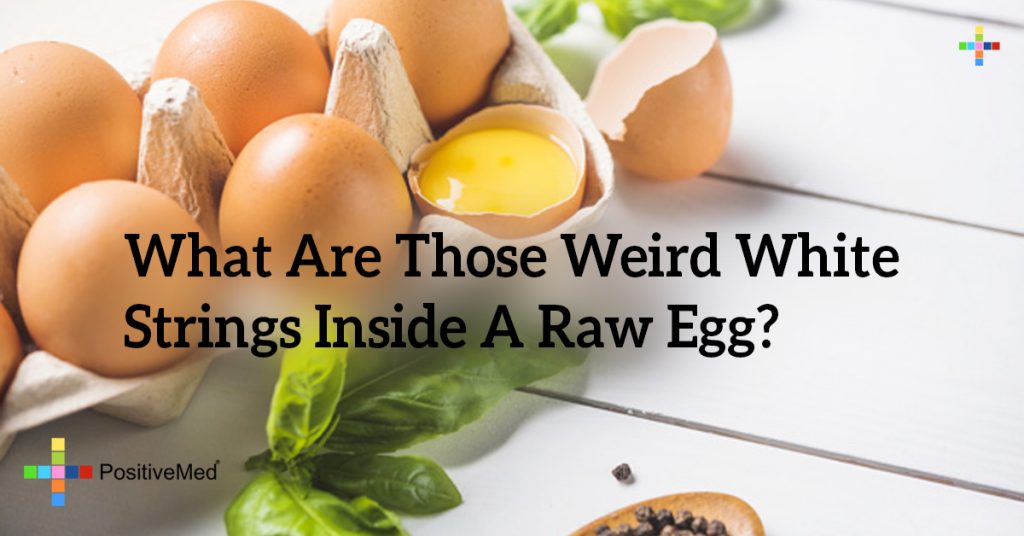
What Are Those Weird White Strings Inside A Raw Egg?
When looking for affordable sources of protein in your diet, there’s nothing quite as all-encompassing as the egg. In fact, the average chicken egg packs not only 6.1 grams of protein but is also one of the most abundant sources of the B-complex vitamin choline and various other important nutrients like lutein, carotenoids, and sulfur. Even better, all of these benefits measure in at around only 90 calories. When cracking open an egg, you may have noticed strange white strings inside. These structures not only play an important role in the egg but can also help you determine whether your egg is good or not.

The Science
The white strings in your egg are more scientifically known as chalaza, or by the plural chalazae. These strings help fasten the egg yolk to the inside surface of the eggshell. In nature, this is especially important as it helps prevent the yolk (the chicken embryo) from getting damaged before it can develop into a healthy bird. The chalaza keeps the egg floating more in the center of the egg whites, which also act as protection.
Good vs Bad Eggs
Chalazae strings not only provide structure during the natural development cycle of a chicken, but they can also provide a clear sign of how old the eggs are that you’re eating. When a chalaza first starts to form, it appears as a thin straight line. As the egg moves around, the yolk forces the string to twist, being held in its twisted state by the weight of the yolk. As the egg ages, these twisted strings become increasingly more difficult to see. With a truly fresh egg, you may be lucky enough to even see multiple chalazae. However, these strings only denote the freshness of the egg, not the overall quality or how it was raised. It’s also important to look closely at the air cell between the egg shell and the egg membrane. The larger this air sack, the older the egg.
RELATED ARTICLE: Are You Purchasing The Freshest Eggs? Watch For THIS Number
Eating the Strings
A common question regarding chalaza is whether or not you can eat the strings. It’s important to note that these strings are not harmful and are completely edible. In most dishes you’ll be unable to tell they are present, such as with scrambled eggs or baked products. However, many chefs choose to strain them out for certain applications where a smooth texture is crucial for their finished product, such as with custards.
Each individual part of the whole plays an important role in both the structure and nutrition of an egg. So whether you’re cooking the perfect souffle or simply scrambling eggs for breakfast with the family, remember to look for the chalazae as not only a sign of freshness but as just one of the several structures that make eggs a truly incredible part of your diet.





